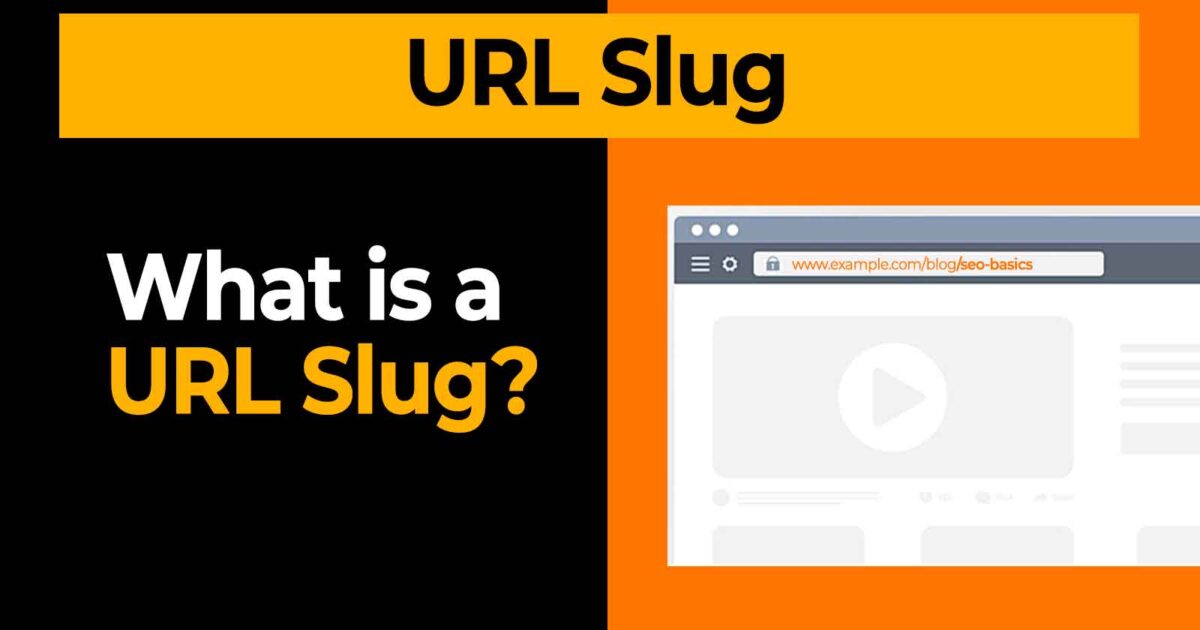
In the complex world of digital marketing, every detail counts, and a well-optimized URL Slug is no exception. While often overlooked, URL slugs play a crucial role in improving your website’s SEO and user experience.
This article explores what a URL slug is, why it matters, and how to create effective slugs to boost your online visibility.
What is a URL Slug?
A URL Slug refers to the part of a web page’s URL that comes after the backslash (“/”). For example, in the URL www.example.com/blog/seo-basics, the slug is seo-basics. It provides a concise identifier for the content on a specific page, helping both users and search engines understand the page’s purpose.
Unlike the homepage URL, which doesn’t include a slug, all other web pages automatically generate slugs. However, these auto-generated slugs are often long or nonsensical. Crafting your own slug using best practices ensures better readability, improved SEO, and enhanced user trust.
Why URL Slugs Matter in SEO
Optimized URL slugs benefit your website in the following ways:
1. Improved Search Engine Rankings
Search engines analyze URL slugs to understand page content. Including relevant keywords in your slug helps search engines rank your page for targeted search terms.
2. Enhanced User Experience
Clear, concise slugs make URLs more readable and memorable for users. A user-friendly slug builds trust and increases the likelihood of sharing and revisiting the link.
3. Higher Click-Through Rates (CTR)
Descriptive slugs often perform better in search engine results pages (SERPs), enticing users to click by giving them a quick understanding of what the page offers.
Best Practices for Creating SEO-Friendly URL Slugs
To maximize the impact of your URL slugs, follow these proven strategies:
1. Use Hyphens to Separate Words
Avoid spaces or underscores in your slugs. Instead, use hyphens (-) to separate words for better readability and functionality. For example, www.example.com/seo-tips is preferable to www.example.com/seo_tips or www.example.com/seo%20tips.
2. Keep Slugs Short and Descriptive
Short slugs are easier for both users and search engines to process. Aim for 3-5 words that clearly describe the page content. For example, instead of www.example.com/all-you-need-to-know-about-seo-basics, use www.example.com/seo-basics.
3. Incorporate Target Keywords
Your primary keyword should be included in the slug to improve search visibility. For instance, a blog post on content marketing should have a slug like www.example.com/content-marketing-tips.
4. Match Slugs to Headlines
While your slug doesn’t need to match the page title exactly, it should align with the main topic. Simplify longer headlines into concise, keyword-rich slugs.
5. Avoid Special Characters and Dates
Special characters like @, &, or % can cause technical issues and look unprofessional. Similarly, avoid adding dates, as they can make content appear outdated.
6. Use Lowercase Letters
URLs are case-sensitive, and uppercase letters can lead to duplication errors. Stick to lowercase letters for consistency.
7. Optimize Existing Slugs (With Caution)
If your older pages have poorly designed slugs, consider updating them. Use 301 redirects to ensure users and search engines are directed to the updated URL without losing SEO equity.
Common Mistakes to Avoid
While creating URL slugs, steer clear of these pitfalls:
- Keyword Stuffing: Overloading slugs with keywords can harm your SEO.
- Lengthy Slugs: Long slugs are harder to read and share.
- Non-Descriptive Slugs: Generic names like
page1ordefaultfail to convey value.
Crafting URL Slugs for Different Page Types
Blog Posts
For a blog titled “10 SEO Tips for Beginners,” an ideal slug would be www.example.com/seo-tips-beginners.
Product Pages
E-commerce pages should use product-specific slugs, such as www.example.com/wireless-earbuds.
Landing Pages
For promotional pages, keep the slug relevant to the offer, like www.example.com/free-seo-guide.
An optimized URL Slug is a small but powerful tool in your SEO arsenal. By following best practices, you can create slugs that enhance user experience, improve search engine rankings, and drive more traffic to your website. Start optimizing your slugs today to unlock their full potential in your digital marketing strategy.









